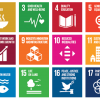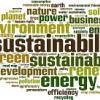News
Displaying Results 326 - 338 of 338
In 2022, we will celebrate 30 years since the formulation of the Fundamental Principles of Official Statistics and their adoption by UNECE. The Fundamental Principles were subsequently adopted in 1994 by the United Nations Statistical Commission; endorsed by the Economic and Social Council (ECOSOC…
Overfishing threatens the sustainability of maritime resources and endangers food security. In the last few years, the share of fish stocks that are within biologically sustainable levels has reached its lowest point in history, down from 90% in 1974 to 65.8% in 2017. Illegal, unreported and…
By Ms. Olga Algayerova, UN Under-Secretary-General and Executive Secretary of UNECE, and Ms. Elisabete Quintas da Silva, Head of Department, Sustainable and Efficient Use of Resources Operational Programme, Government of Portugal, and Chair of the UNECE Committee on Environmental Policy.
This…
Four decades of experience under the UNECE Convention on Long-range Transboundary Air Pollution (Air Convention) have demonstrated that ratification and implementation of the Convention and its protocols reduces health and environmental impacts in a more cost-effective way than unilateral action by…
Improving energy efficiency is a cost-effective means to support economic development while contributing to climate action. On a national scale, energy efficiency helps strengthen energy security, reduce energy expenditure, slow down energy demand growth, reduce investment needs for new generation…
This year’s High-Level Political Forum (HLPF), taking place from 6-15 July, will underscore the SDGs as the pathway to COVID-19 recovery and building a healthier, more inclusive and sustainable future. Nine SDGs will be in focus: Goals 1 on no poverty, 2 on zero hunger, 3 on good health and…
Each UN country team develops with the host Government a strategic plan to support national development priorities and strategies. The result is the UN Sustainable Development Cooperation Framework (UNSDCF). The preparation of the UNSDCF begins with a Common Country Analysis (CCA), which provides…
Countries in the Caucasus, Central Asia, Eastern and South-Eastern Europe are stepping up efforts for their sustainable energy transition with ambitious plans and policies, aiming to significantly cut CO2 emissions and advance implementation of the Sustainable Development Goals (SDGs) and the Paris…
Statistics are all around us. All the more since the COVID-19 pandemic began. Rarely do we see a news story, political debate, press conference or even a social media debate that doesn’t reference statistics. In this environment, the custodians of the figures—the national statistical offices (NSOs…
The heads of national statistical offices of 59 countries and 24 international organizations are gathering this week in Geneva and around the globe for the 69th plenary session of the Conference of European Statisticians, the decision-making body for statistical matters in the UNECE region and…
Risk is a part of our everyday lives. When we wear a helmet to ride a bike, for example, we accept a small inconvenience to reduce the risk of a fall or an accident. When a homeowner decides to retrofit their house, they incur a cost to shield against an earthquake or a flood. Faced with the COVID…
Every year we lose about 14% of the food produced before it is sold, and this does not even include the food never harvested. Even more is wasted at retail and consumer levels. At the same time, over 800 million people worldwide suffer from hunger, while food loss is a major contributor to CO2…
The world is urbanizing fast. Already today, half the population is living in cities. By 2050, that proportion is projected to rise to over two thirds. Cities are economic powerhouses, accounting for 80 percent of world GDP. They also have large ecological footprints, accounting for 60-80 percent…











